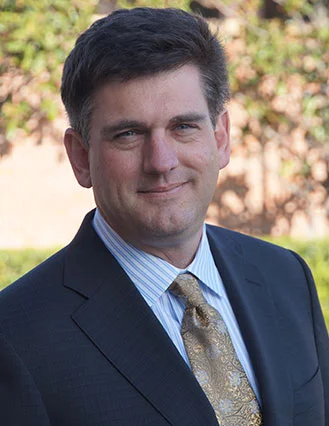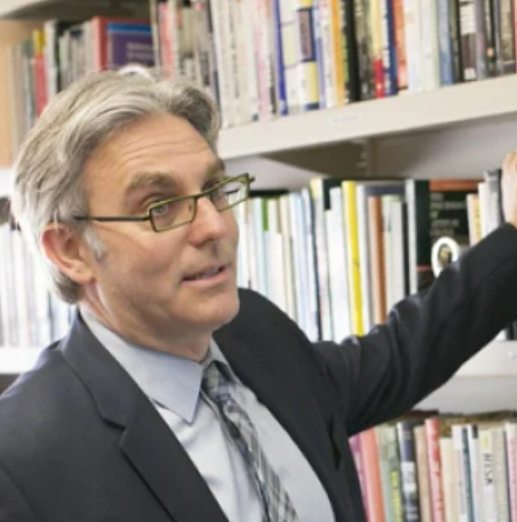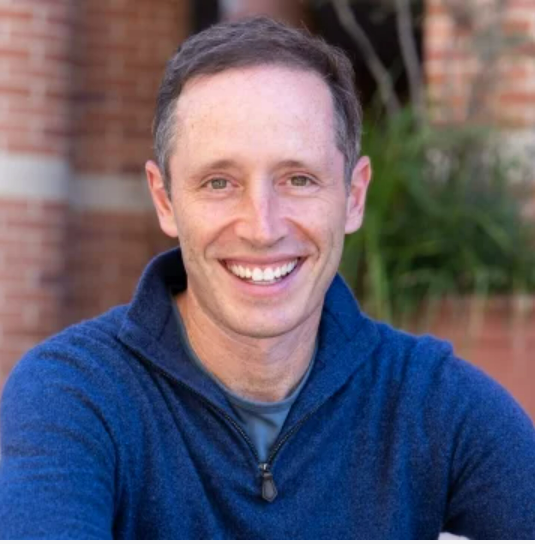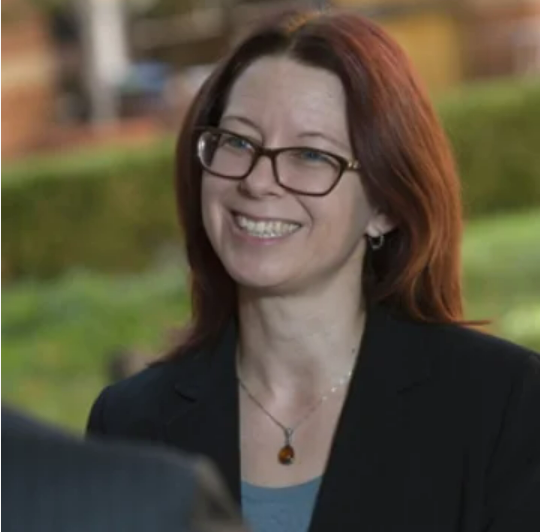UCLA Classroom Module -April 22nd-26th, 2024 -Persuasion & Influence, Negotiations, Decision Making for Leaders, Finance & Business Simulation

In this module you will get intense understanding of Persuasion and Influence, what are the basics of Negotiations and its vast overview, which will help you to make Decisions as for Global Leaders. Here in this module you all be working on Business simulation and gain financial aspect as well.
Faculty

Prof David Wessels
Professor
David Wessels (Ph.D) is an adjunct professor of finance and a director of executive education in the Wharton School at the University of Pennsylvania. Wessels teaches courses on corporate valuation, venture capital and performance management to undergraduates and MBAs in Philadelphia and San Francisco, along with global executive audiences.
Wessels has been recognized by his students with Wharton’s MBA excellence in teaching award, and has been acknowledged nationally for his research on organizational structure and financial performance. His co-authored book, Valuation: Measuring and Managing the Value of Companies, is accepted as the seminal text for students of corporate valuation and investment banking.
Wessels has served on the executive development and training faculties at Bank of America Merrill Lynch, Coca-Cola, Ericsson, Estee Lauder, Home Depot, Lockheed Martin, McKinsey & Company, Microsoft, Philips, PricewaterhouseCoopers, Siemens and UPS.
Before joining the Wharton School, Wessels served on finance faculty of the Goizueta Business School at Emory University. Prior to Emory, he was a management consultant with McKinsey & Company and a technology analyst for Harbourvest Venture Partners in Boston.
Education
Ph.D. Finance, UCLA Anderson School of Management
B.S. Economics, University of Pennsylvania
B.S. Computer Science, University of Pennsylvania

Prof. Craig Fox
Harold Williams Chair and Professor of Management, Area Chair
Craig Fox is the Harold Williams Chair and Professor of Management at the UCLA Anderson School of Management, with joint appointments as professor of psychology at the UCLA College of Letters and Sciences and professor of medicine in the UCLA Geffen School. Fox co-founded the Behavioral Science & Policy Association and is co-editor of its flagship journal, Behavioral Science & Policy (BSP). He is also the co-director of the Interdisciplinary Research Group on Behavioral Decision Making at UCLA.
Fox’s research focuses on decision behavior, especially under conditions of risk and uncertainty. He uses a variety of research methods, including surveys and lab experiments, field studies and analysis of archival data, and neuroimaging. His research has been published in top journals of management, psychology, economics, law, neuroscience and general science.
Much of Fox’s work entails application of behavioral economics and social psychology to public and private sector policymaking. “The success of nearly all public and private sector policies hinges on the behavior of individuals, groups and organizations,” says Fox. This is where scientific research comes in, he says: “Policymakers often are unaware of insights from behavioral science that may help them craft and execute more effective and efficient policies.” For instance, in a recent set of projects Fox and his colleagues applied behavioral techniques to “nudge” physicians to reduce their tendency to over-prescribe antibiotics, which contributes to the rise of antibiotic-resistant “superbugs.” “Our research team has developed several new approaches to reducing unnecessary antibiotic prescribing, drawing on insights from behavioral economics and social psychology,” Fox wrote in the New York Times. “These disciplines acknowledge that people do not always behave rationally and are strongly motivated by social incentives to seek approval from others and compare favorably to their peers.” Techniques used in his most recent study almost completely eliminated inappropriate prescribing.
Fox joined the UCLA faculty in 2003 after six years at Duke University’s Fuqua School of Business. He teaches MBA and executive courses in managerial decision-making, negotiation, leadership, strategy and dynamic management, as well as Ph.D. courses in decision-making.
Ph.D., M.A. Psychology, 1990–94 Stanford University
B.A. Economics and Psychology, 1989, University of California at Berkeley, Phi Beta Kappa, summa cum laude

Prof.Hal Hershfield
Professor
Psychologist Hal Hershfield studies how thinking about time transforms the emotions and alters the judgments and decisions people make. His research concentrates on the psychology of long-term decision making and how time affects people’s lives — specifically at a moment when Americans are living longer and saving less.
Hershfield says, “We’re in an interesting time to be conducting research on these topics because there are so many methodological tools available. I take the same question and try to investigate it from different angles, whether from a psychological perspective or a marketing perspective or even more of a managerial perspective. ‘What are the psychological components of saving, and how can we help people along the process of their looming retirement?’ When it helps shed light on the question, I use methods like neuroimaging, eye tracking, archival and big data analyses, and even virtual reality.”
One of Hershfield’s most well-known discoveries suggests that when people are confronted with their “future selves” they experience an emotional sense of connection that can influence long-term financial and ethical decision making. Experiments in which some college students are shown images of their own faces digitally altered to appear 40 years older, while other students see only current, unaltered images of themselves, reveal that those who glimpse their digitally aged selves declare that they would save about 30 percent more, on average, than the students shown pictures of their current selves. “The lesson from that,” Hershfield says, “is that anything we can do that will increase how concrete and salient our future self is can help us make better decisions.”
When do we finally become our future selves? Hershfield says, “It all depends on how we think about the present. People who are able to step outside of the here-and-now in a meaningful way are better able to see how the past, the present and the future are connected. My worry, though, is that people might see this research and think they need to stop enjoying the present so that this future self is taken care of. But that’s not right. You don’t want to arrive in the future with absolutely no memories of anything good! To maximize well-being, we want consumers to focus on the future, but not sacrifice happiness and meaning now.”
Hershfield completed his Ph.D. at Stanford and a post-doc at the Kellogg School of Management at Northwestern University before teaching undergraduates at NYU Stern. He is now Professor of Marketing, Behavioral Decision Making, and Psychology at UCLA Anderson, and holds the UCLA Anderson Board of Advisors Term Chair in Management. The business school environment, he says, affords collaborations with larger firms as well as financial tech startups, and Hershfield is routinely approached by industry. He has been a consultant to Prudential’s “Bring Your Challenges” campaign, the Consumer Financial Protection Bureau, Merrill Lynch, the Principal Financial Group and many other organizations.
In the classroom, Hershfield strives to create an inclusive environment in which deep learnings are accomplished in a fun way. “Whatever teaching I do has to be enjoyable for the students and for me,” he says. Pop culture examples abound and provide lessons that are effective because they resonate outside specialized frameworks.
Education
Ph.D. Psychology, 2009, Stanford University
B.A. Psychology, 2001, Tufts University

Prof. Jana Gallus
Associate Professor of Strategy and Behavioral Decision Making
Jana Gallus is an associate professor in the strategy group at UCLA Anderson. Her research interests lie in behavioral economics, strategy, and innovation, with a focus on recognition incentives and their effects on decision-making. She investigates how incentive schemes can be designed to enhance employee motivation and organizational performance in the private, public, and nonprofit sectors.
Gallus’ work has been published in Management Science, Strategic Management Journal, Applied Economics, Labour Economics, and Organizational Behavior and Human Decision Processes, among other journals. Her research is informed by consulting activities for organizations on the design of incentives and recognition schemes.
Gallus joined UCLA from Harvard, where she was a postdoctoral fellow. She received her Ph.D. in economics from the University of Zurich, with the distinction summa cum laude, and holds two master’s degrees, from Sciences Po Paris in France and the University of St. Gallen in Switzerland.
Education
Ph. D. Economics, summa cum laude, 2015, University of Zurich
Double Master: Finance and Strategy, International Affairs and Governance, 2009–2011, University of St. Gallen and Sciences Po Paris
Bachelor and Master, 2006–2011, Sciences Po Paris

Prof. Jennifer Whitson
Associate Professor of Management and Organizations
Jennifer Whitson is an associate professor of management and organizations at the UCLA Anderson School of Management. Prior to joining Anderson, she served as assistant professor at McCombs School of Business, University of Texas at Austin.
“Broadly, I study control,” says Whitson: “how people react when they lack it, how they try to gain more of it and how they exert it over others. I’ve always been interested in how people make sense of the world, both when they get it right and when they get it wrong.”
Whitson’s work establishes a critical relationship between the psychological experience of lacking control and what she calls illusory pattern perception. When people feel out of control, they connect dots that there is no rationale for connecting, such as believing in conspiracy theories or superstitions. “A lack of control drives people to seek structure in their environment, even if this means seeing patterns that don’t exist,” says Whitson.
Her work also demonstrates that the implications of control extend beyond areas in which control has been previously studied, and they carry a business cost. The downstream effects of a manager’s exercising power through rewards and punishments, for instance, influences others’ behaviors. Whitson finds that different managers will respond to the same behaviors with different punishments. “Depending on the culture and context that they’re operating in, some managers prefer directly punishing people, while others react by instead withdrawing social support — actions that can have very different results for the organization,” she says. “Understanding control’s role in human psychology can empower managers and organizations in this increasingly volatile and uncertain world.”
Another branch of Whitson’s research explores how members of stigmatized groups who lack control over the way they are seen by the dominant society regain that control through reappropriation — that is, by self-identifying with terms used by others as slurs. Group identification, she finds, is a critical component in reappropriating stigmatizing labels. By exploring how members of stigmatized groups strategically weaken the tools used to disempower and demean them, her research seeks to shed light on how groups can manage conflict in organizations and in society.
Whitson’s scholarly work has been published in numerous peer-reviewed journals and garnered international media coverage. She has appeared on CBS Morning News, National Public Radio, Through the Wormhole with Morgan Freeman and National Geographic’s Brain Games.
Ph.D. Management and Organizations, 2007, Northwestern University
M.S. Management and Organizations, 2004, Northwestern University
B.A. Psychology and Social Behavior, 2000, University of California, Irvine
Learning Objectives:
- You will be learning various corporates strategy and value creating techniques which will help you to create benchmark in your career.
- As a value drivers you all will be taking deeper drive into operating margins and intensify your capital approach.
- Learning Industry economics and negotiation topic at more comprehensive level to become global leaders.
Classroom Approach
These sessions will be interactive and participants will be encouraged to ask questions. Hands-on exercises using Business simulations and examples will be used from a wide range of industries and markets.
Support
Please email [email protected] for any support required with respect to the program, course or platform.
